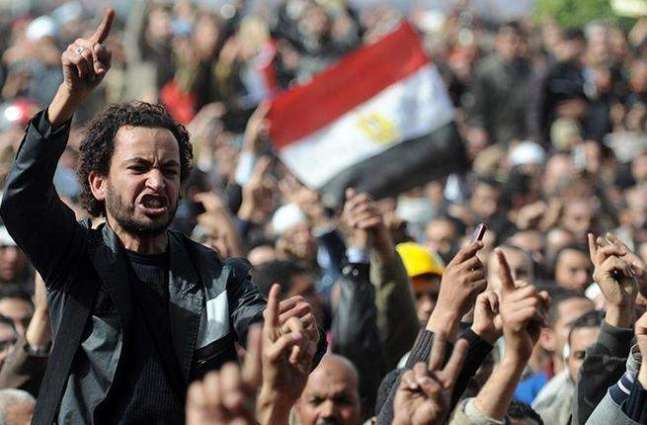Egypt on Friday marks two memorable dates at once: the eighth anniversary of the beginning of popular protests which put an end to Hosni Mubarak's 30-year rule, and a national holiday
CAIRO (Pakistan Point News / Sputnik - 25th January, 2019) Egypt on Friday marks two memorable dates at once: the eighth anniversary of the beginning of popular protests which put an end to Hosni Mubarak's 30-year rule, and a national holiday - the Police Day.Experts and participants in these events told Sputnik why eight years later there were practically no heroes of the Arab Spring left in the country's political arena and why the Police Day has been increasingly squeezing out the anniversary of the Egyptian revolution from the media scene.
The Names of the heroes of those events do not come up, and they do not really seek publicity themselves. After Mubarak's resignation, former Egyptian diplomat and former Director General of the International Atomic Energy Agency (IAEA) Mohamed ElBaradei was considered one of the main presidential contenders in Egypt because of his popularity and experience in international politics.
ElBaradei was appointed vice-president in 2013, but soon resigned from that position because of disagreement with the excessive, in his opinion, use of force against the Muslim Brotherhood protesters. After the resignation, ElBaradei has left Egypt and practically fell out of the country's political life.
In 2010, a young software engineer, Wael Ghonim, created a group on Facebook called "We are all Khaled Said" in honor of the young activist named Khaled Said who died at a police station in Egypt's port city of Alexandria. It was this page, where calls for participation in the protest on January 25, 2011, were posted. This protest marked the beginning of the dramatic events in Egypt.
Now Ghonim, who, according to many, had been the spark that gave rise to the protests, lives in the United States. Dozens of politicians, activists, leaders of various youth revolutionary associations and political parties have become redundant.
The opposition could not join forces to offer their project to the Egyptian society, and therefore practically fell off the grid, Khaled Okasha, the director of the Egypt's National Center for Security Studies, said.
"Nowhere in the world is the ruling elite engaged in the nurturing of the opposition, so the problem is in the opposition parties and movements themselves, which could not bring their proposals in line with the aspirations of the Egyptian people. As a result, they have lost support and their influence," Okasha said.
According to the expert, those who really wanted to be involved in politics, have managed to get into parliament, while others are "busy looking for excuses" of their failures.
But, according to Hassan Nafia, a professor of political science at Cairo University, who in the past was engaged in political activity himself, all stakeholders of eight-year-old events prefer to remain silent "out of concern for their safety."
"Oppositionists in Egypt either stay silent now, or act only within the limits allowed by the authorities," the Egyptian expert noted.
However, Nafia added that the spirit of the revolution of 2011 was not dead yet and the goals that were set then have not been fulfilled yet.
"No one knows when a spark sets all aflame and everything will start over again," he concluded.
Former Deputy President of the Supreme Constitutional Court Tahani al-Gebali took part in the actions on the Tahrir Square in 2011 herself and was willing to argue about freedom of political activity in Egypt.
She claims that now she is completely free to express her opinion about what is happening in the country.
"This is absolutely not about the limits that restrict opposition activities ... It is just that certain people pursued their own interests, and as a result they have been out of the loop," al-Gebali said.
Mass anti-government protests erupted in Egypt on January 25, 2011, they were timed to the professional holiday of the police. Mass demonstrations and clashes were followed by the resignation of President Mubarak, the dissolution of the parliament and the suspension of the constitution.
As a result of the mass protests, two and a half years later, Egyptia President Mohamed Morsi, who was elected after the uprising, was dismissed. Egypt has found the relative stability after a former Egyptian defense minister Abdel Fattah Sisi came to power in 2014. In 2018, Sisi was re-elected for a second four-year presidential term.




